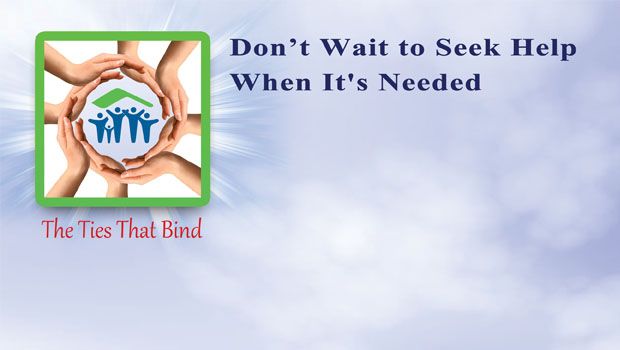As I sat there looking at her pale face with tears streaming down her cheeks, I thought of all of the other cases in which people waited so long to seek help. Here she was, three years into a difficult marriage, finally having the courage to seek outside help. She was desperate and didn’t know what to do. She had a feeling that her husband had been cheating; she had more than a feeling since she had evidence, but the way that she spoke about it was like she was still not so sure. A year had gone by that he had been texting another woman, staying out late at night, and distancing himself from his wife and children. She always had given him an excuse, told herself that Allah (SWT) would want her to be patient, and wished that he would change. That time never came around and the other woman did not disappear from her husband’s life. She finally had to face it when she saw pictures of them on his Facebook account holding hands and looking into each other’s eyes as only a husband and wife should. She finally made an appointment because she had to do something but had no idea where to begin.
Unfortunately, there are too many cases like this one in which people wait far too long to seek help.
Whether it is the mother whose son had been depressed for over a year, the husband who couldn’t stand looking at his wife anymore, or the divorcee who didn’t have anyone to turn to after months of searching for a new spouse, I have found that people wait too long before reaching out to a therapist. When they finally do come in, although I never believe it is too late for anyone to be helped, the situations have reached such a crisis state that it takes that much longer to resolve.
What is it about therapy that frightens people? I asked this question on my Facebook page, The Muslim MFT, and here are the answers I received: finances, stereotypes about counseling and mental illness and even emotional problems, shame, lack of trust, spouse not willing to go, fear of being exposed, fear of the unknown, time, not a priority, stigma, fear of facing the truth, family and peer pressure, and thinking it won’t work. SubhanAllah, the number one reason for not going to a therapist was the issue of money. That was a surprising since I was under the impression that the majority of people opt out because they attach a stigma to it. There are actually two sides to the money issue. Some people truly don’t have the finances to pay for counseling. But others have the money but as my respected colleague Marina Voron said, “People undervalue both the value of their own mental health and the value of a trained professional who can help them!”
The importance many people attribute to mental health ranks far below that of one’s physical health, even though the two are actually intertwined. According to a government agency report by the Substance Abuse and Mental Health Services Administration, individuals with mental illnesses are more likely to report chronic health conditions and to use healthcare services. This shows the relationship between mental and physical health. I have often found people come to see me only after it has been recommended by their primary care doctor. When people feel ill with stomach pain, headaches, body aches, or other distressing symptoms, they first think of a medical fix. Although this may be the only solution they need, there is often an underlying mental health issue that is not being addressed. Depression, anxiety, suppressed emotions, marital conflict, life cycle changes, and more, can all manifest in physical symptoms as well. It is essential for people to pay attention to their hearts and minds as well as their bodies to truly understand what is going on with themselves.
When people pay attention to their hearts and minds and realize the centrality of mental and emotional health to their overall well-being, they will be able to put aside the negative ideas associated with therapy and counseling.
When people pay attention to their hearts and minds and realize the centrality of mental and emotional health to their overall well-being, they will be able to put aside the negative ideas associated with therapy and counseling. There is nothing to be ashamed of when you are in need of a professional’s guidance. Each and every person on this earth at one point will deal with an issue that requires another person to help them resolve it, whether this is an imam, a friend, a counselor, a teacher, or other trusted person. Reaching out to a counselor or therapist because of their expertise displays intelligence, and a confident determination to make things better. At the end of the day, you are the one who is living your life, not others who might have negative comments and judgments. When things get difficult, it is okay, and often necessary, to reach out.
When we hesitate and delay seeking help when we need it, we are putting off facing and solving tough issues, tolerating burdens that are meant to be alleviated. We allow problems to fester, we continue to engage in dysfunction, or we ignore our children’s cries for help. Too often the issues have escalated and when we have exhausted all other routes, we enter into counseling broken and hopeless. It does not have to be this way, and it shouldn’t. As a community, we need to stand together to challenge negative views about therapy. We need to encourage one another, lift each other up, and turn to professionals when in need to make our society a better place. When we change our preconceived notions with regard to therapy and remind ourselves that Islam and the Prophet (pbuh) encourage seeking help when needed, we will push beyond the clouds of darkness to see a better day. The light of hope will shine through and allow us to flourish.
The first step begins with you.





